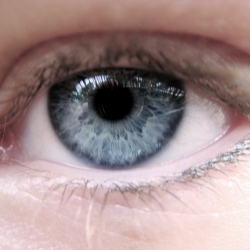
Researchers are working hard to harness the hands-free nature of Google Glass to improve the lives of those with compromised mobility, vision and hearing.
Glass has an expected on-sale date sometime in 2014. As a product still in its infancy, it recalls the iPhone’s early days as a smartphone with promise and woefully few apps. But while Glass’ full potential will be determined down the road, it already has distinguished itself as a potentially life-changing tool for the disabled.
Researchers in a range of disciplines are looking into ways to leverage Glass’ inherent advantage over the smartphone — its hands-free nature — to help those who navigate life with compromised mobility, vision and hearing. There’s even work being done to assist those with autism, using facial recognition software to help identify the emotions of others.
Perhaps not since the invention of text-to-voice and other speech-recognition software has a tech invention had such potential to help the disabled.
"Glass will be revolutionary for the disabled," says Rosalind Picard, founder of the Affective Computing Research Group at Massachusetts Institute of Technology’s Media Lab, whose focus is autism and communication technology.
"With facial analytics, it’s possible to, with the subject’s approval, have Glass scan a face and put up a green light if the person is intrigued, yellow if they’re confused or red if they’re bored," she says. Then, chuckling, she adds, "It could even whisper at you during that date, ‘Hey, she’s losing interest.’"
Picard says speech recognition is getting so good that a deaf person soon could see a real-time transcript of what a friend is saying in Glass’ prism. A person with limited vision could take walking directions from Glass through its bone-conducting speaker housed in the right temple.
Glass is being developed with input from the disabled.
Kane has been using Glass daily since August, mostly to snap photos on the go. But he’s bullish on the device’s potential to vastly improve quality of life for the blind. "Having something on your head that is pointing naturally in the direction you are looking is invaluable," he says.
Jeff Bigham, who conducts research in the same area, agrees. "Imagine this," he says, excitedly. "A blind person with Glass walks by a store and Glass recognizes it and announces what it is. Maybe that person didn’t notice that it changed from a restaurant to a dry cleaner, but now he knows. These are things the rest of us take for granted, but for a blind person, it’s truly powerful.
Bigham, an assistant professor at the Human-Computer Interaction Institute at Carnegie Mellon University in Pittsburgh, has developed software that in fact can do such things. A video he posted on YouTube shows a blind man wearing glasses walking through a room filled with equipment, and each time a piece comes into Glass’ view it describes the apparatus to the wearer.
